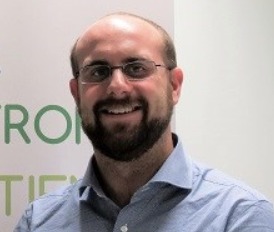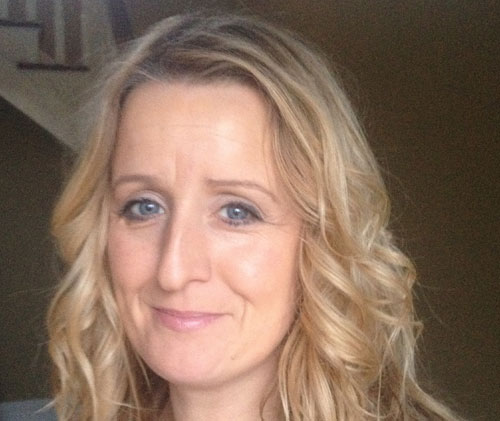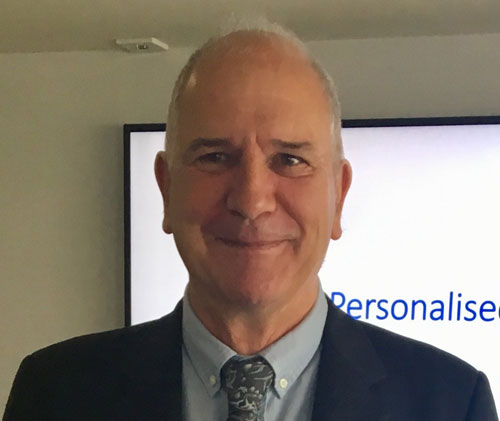Nicola Bedlington
Special Advisor, EPF

The patient community is a strong advocate for patient involvement in many aspects of healthcare such as service designing, research and development and HTA; this is because patients, as final users, are very much aware of what can be improved in healthcare systems.
Nevertheless, asserting that patient involvement is needed to pinpoint the “added therapeutic value” of new technologies and treatments, always triggers the question of its impact, if any. For many, the issue of measuring impact is raised frequently, as the facilitation of patient involvement comes with investments, setting up of programmes and infrastructures.
Special Advisor, EPF

Patient Engagement Liaison, European Medicines Agency

Senior Health Economist, Belgian Health Care Knowledge Centre

Director, EngageMinds-Hub

Project Coordinator, HTAi Patient and Citizen Involvement Interest Group

Head of Legal Department, Greek National Organisation for the provision of Health Services

EU Patient Engagement Lead, Merck Sharp & Dohme (MSD)

Executive Director, European Federation of Neurological Associations

Health systems’ performance can be assessed by evaluating to what extent they deliver the outcomes and experiences that matter most to patients. This session takes a health systems perspective based on EPF’s work with patients on defining “quality” healthcare, and links to current initiatives on developing patient-centred healthcare quality indicators together with patients.
Executive Director for Strategy and Healthcare Systems at the European Federation of Pharmaceutical Industries and Associations (EFPIA)

Health Policy Analyst, OECD

Director, European Observatory on Health Systems and Policies

Chaired Professor of Innovation Management & Value in Health at the University of Paris Medical School.

Independent, freelance consultant

More speakers Announced soon
Patients are increasingly becoming not only research subjects but also co-researchers, and even drivers of research. Research with patients, driven by patients’ real-life unmet needs and priorities, can deliver high-value, sustainable solutions. This session will explore the opportunities of doing research “with” as well as “for” patients, looking at innovative examples from therapeutic research and development, but also at a wider context of health and the setting of research priorities together with patients. The session is developed in collaboration with BMJ.
Professor of Innovation and Communication in the health and life Sciences

Head of European Affairs for the European Research Infrastructure for Translational Medicine (EATRIS)

President, EVITA, European Reference Network GENTURIS

Chief Patient Officer and Head of Patient Engagement, LEO Pharma

EUPATI coordinator, EPF

Assistant Professor of Patient involvement in health research, policy-making and care practice at the Athena Institute of the Vrije Universiteit Amsterdam

Senior Editor at BMJ Publishing Group

This session will look at inspiring and educational case studies, exploring the process, principles, benefits and pitfalls of co-designing a healthcare service local with those who use it. You will have an opportunity to learn from the perspective of the patients and healthcare users, as well as professionals and healthcare managers.
Cand. Mag. Comm., consultant, user background Unit for Co-Creation Aalborg University Hospital, Psychiatry

Patient representative

Director for Patient Safety and Quality Psychiatry Management - Northern Region of Denmark

Former Secretary of State for Health in Hungary, Director of the Health Services Management Training Centre of the Semmelweis University

Expert at the National Institute of Public Health in Slovenia

Digitalisation in healthcare has the potential to transform patient-centred care. This session on digital health has two main objectives. On the one hand, we will explore the different ways in which “digital” can improve the care of patients (at a systemic, or individual level) and how this can be scaled up. At the same time, we will examine how patient involvement can be embedded in digital health as a driver for change, with the intention of harnessing digital technologies for the benefit of patients and society.
Our premise is that all developments should start from the needs of healthcare users and be co-created with users. This would ensure that technology actually facilitates participatory, person-centred healthcare and leads to better outcomes for patients and better value for society.
Co-founder & CRO, FibriCheck

President of The European Institute for Innovation through Health Data (i~HD)

Senior Advisor at the Regional Ministry of Health and Families of Andalusia (Spain)

Member, European AIDS Treatment Group (EATG)

Principal eHealth Policy Analyst, European Health Telematics Association

Patients and patient organisations play a key role in advocating for safer care, which should be promoted through empowerment and participation at all levels. Research suggests that “lay expertise” could be the backbone of patient safety, including in acute illness, but there are barriers – such as patients’ concerns not being taken seriously, persistent hierarchical culture, and the disempowering nature of many healthcare settings. This session will build on previous work done by EPF to identify ways forward towards achieving a patient safety culture where patients’ experiences are valued, and their participation welcomed.
Health Policy Analyst, OECD

Quality & Safety Officer, Platform for Continuous Improvement of Quality of Care and Patient Safety (PAQS)

Patient Representative, Ireland

Patient Representative, Ireland

Executive Director, for the Centre for Empowering People and Communities

Senior Fellow, Friends of Europe

Data & Improvement Officer for Platform for Continuous Improvement of Quality of Care and Patient Safety (PAQS)

More speakers Announced soon

We are proud to announce that EPF Congress 2019 is Patients Included™. This means that EPF is committed to incorporating the experience of patients as experts in living with their condition while ensuring they were neither excluded nor exploited.
More informationThe website you’re trying to visit is from the 2019 edition of the EPF Congress. To get informations for this year’s event please follow the right link below.